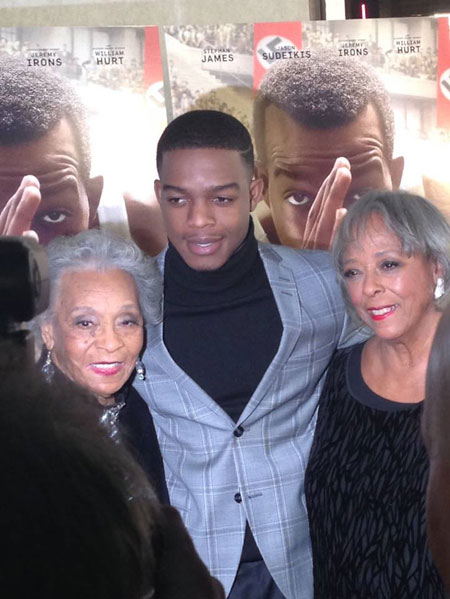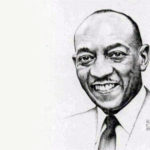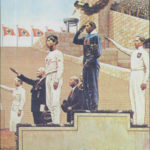The Summer Olympic Games: Heroes, Hope, and Hostility
Stir your memories of Olympics past with these Post articles that highlight the hope, hard work, and often controversy that surround an athlete’s participation in the Olympic Games.
Scandal and the Olympics
By Roger Kahn
Originally published October 10, 1964
Much like today, the Tokyo Olympics of 1964 were mired in controversy, with questions of national unity and political allegiances overshadowing the athletics.
Jesse Owens Remembers the 1936 Berlin Games
By Jesse Owens
Originally published January 1, 1976
Forty years after his historic showing in Germany, the track star reflects on the 1936 Olympic Games, his gold-medal effort, and an unlikely friendship that formed along the way.
California Gold Prospects: Olympic Hopefuls in 1983
By S. Lamar Wade
Originally published July 1, 1983
A year before the 1984 Los Angeles Games, the Post highlighted a group of American Olympic hopefuls, some of whom went on to earn worldwide fame.
Jesse Owens Remembers the 1936 Berlin Games
Jesse Owens’ triumph at the 1936 Berlin Games was marked not only by his gold medals but by his grace and dignity in the face of racial hostility. In the second of a seven-part Post series he wrote in 1976 on the “spirit, courage, and enduring qualities of the Olympic Games,” the track star remarks on his unlikely friendship with an athlete from Nazi Germany.
1936: Golden Moment of Triumph
By Jesse Owens
Excerpted from an article originally published on January 1, 1976
We have to remember that more than victory itself, the Olympic Games teach us a sportsmanship that transcends all prejudices and national and racial lines. That year was a very difficult year because Hitler had declared the dominance of the German Aryan race, and we had the impudence to come over and prove him wrong in so many cases.
But there was one incident that happened in those Olympic Games which I shall never forget and which represents to me an example of how friendship and sportsmanship can transcend all obstacles when given the opportunity. The broad jump was an event that I was supposed to win with some ease because in the past I had failed only once to win first place in every track meet in which I had participated in my entire athletic career. But on this day, something was going wrong. I couldn’t imagine what was happening to spoil my jumping technique, but I had jumped only 23 feet 6 inches as a qualification effort and apparently was about to be eliminated.
But there happened to be a young German broad jumper, Lutz Long, the greatest of them all in his own country, who was watching as I took my qualifying jumps. I had already fouled twice, and it looked as though I might not even be able to survive in the competition. But he came over and remeasured my steps, remeasured my takeoff mark, and he laid out my sweatshirt right next to the takeoff board as a marker to help my jump. Thanks to his suggestions and confidence in me, I was able to produce a leap which qualified and opened up the pathway to ultimate victory.
Lutz Long jumped 25 feet 9 27/32 inches for a new Olympic record. I managed 26 feet 5 5/16 inches and so won. Lutz was second; but in my book of sportsmanship he ranks first.
You can imagine how touched I was at such sportsmanship. My friendship with Lutz Long, which commenced so brightly on the field of competition, continued after the Games. We became great friends and we corresponded regularly. But during World War II, sometime during the invasion of Poland, the last living traces of Lutz Long were obliterated in the Holocaust.
In 1951, I returned to Germany, and among a delegation which came to visit me at the hotel where I was staying, there were a woman and a boy who came up and introduced themselves to me. This boy was the son of my lost friend, Lutz Long, and his name was Kai. Lutz Long had been only 22 at the time of the Olympics, and as the preparation for World War II rushed across Germany, it transpired that this little boy had seen his father only three times in his life. And so I began to correspond with Kai, and then we developed our own friendship that arose from the father’s noble and self-sacrificing sportsmanship and generosity. Kai Long and I continue to correspond and whenever I hear from Lutz’s son, my mind goes back to that afternoon in the Olympic Stadium when an athlete sacrificed his fame and victory for the sake of pure sportsmanship. And then I know that the Olympic ideal is something that should be cherished and never forgotten.
You can read Jesse Owens’ article in its entirety here. For more of our historical coverage of the Olympic Games, check out “The Summer Olympic Games: Heroes, Hope, and Hostility.”
Jesse Owens’ Place in History

Based on the life story of African American Olympic gold medalist Jesse Owens, Race is a film that celebrates determination, courage, and friendship. Race chronicles the challenges and victories faced by Jesse Owens (played by Stephan James) on his path from Ohio State track star to the 1936 Olympic Games in Berlin.
The film not only addresses the racial inequality in 1936 Nazi Germany, but documents bigotry in the U.S. as well. The film also celebrates the relationship between Owens and legendary Ohio State coach Larry Snyder (Jason Sudeikis), whose support became an integral part of Owens’ journey. The film opened nationwide, February 19.
As the film premiered, we found a deep trove of reporting by and about the famous runner:
1936: Golden Moment of Triumph
By Jesse Owens
January/February 1976
In 1976, Jesse Owens wrote a series of articles for The Saturday Evening Post on U.S. Olympians, including himself. In “1936: Golden Moment of Triump,” Owens recalls the games in Berlin and the people who inspired him to become a champion. Read more >>
My Boy Jesse
By Larry Snyder
November 7, 1936
From November 7, 1936, the true story of what Jesse Owens went through after the 1936 Olympics, as told by his coach. Read more >>

